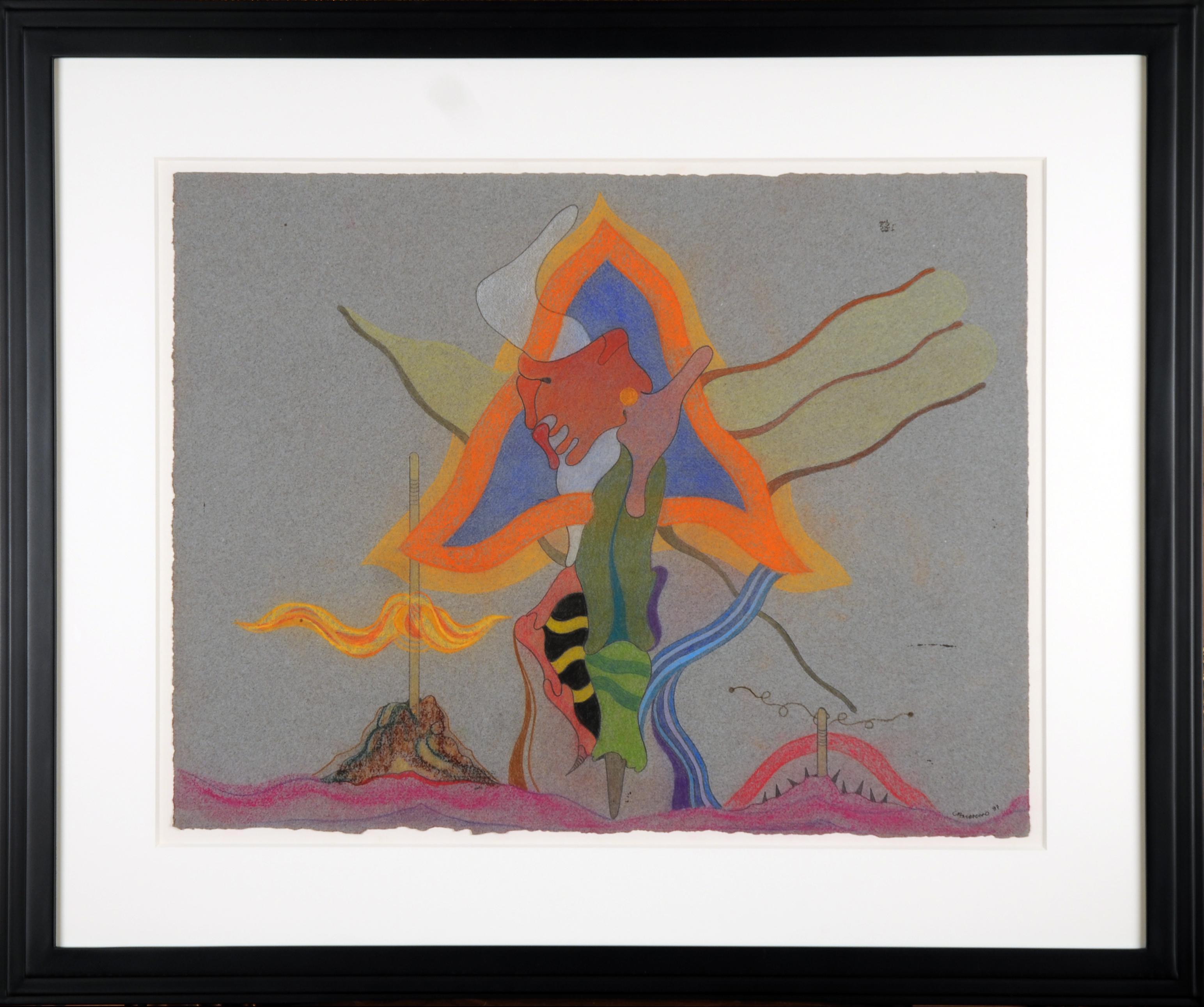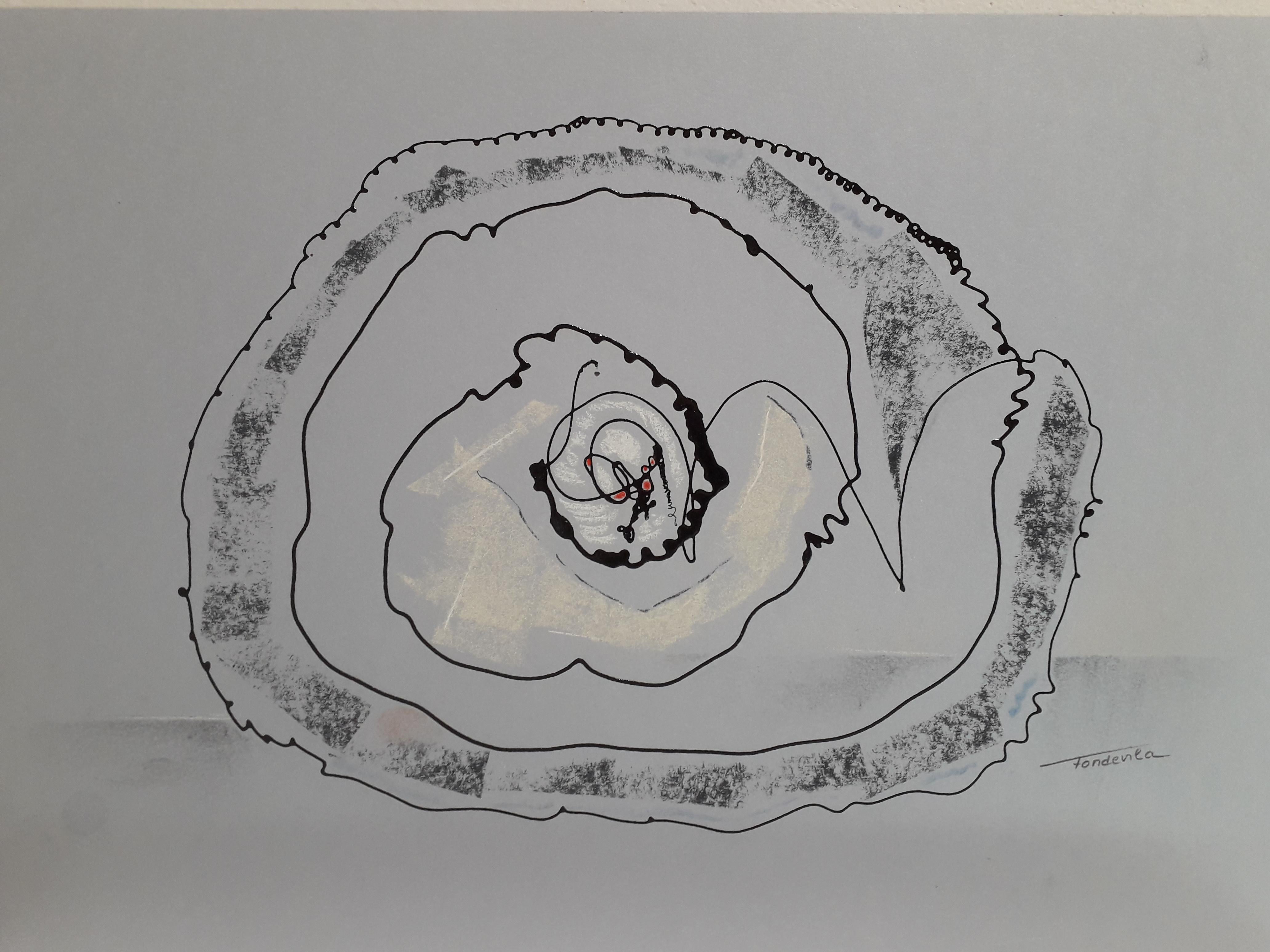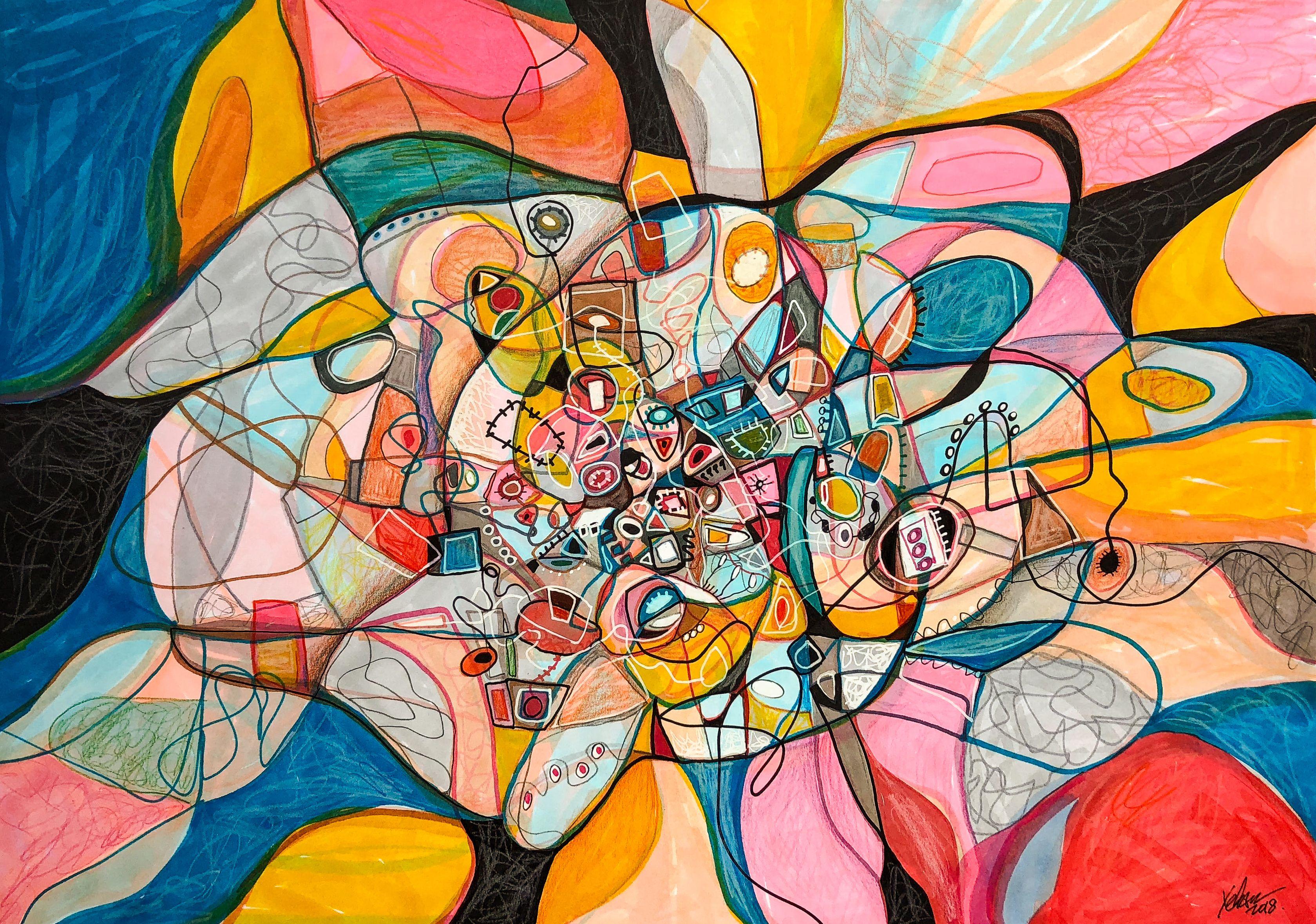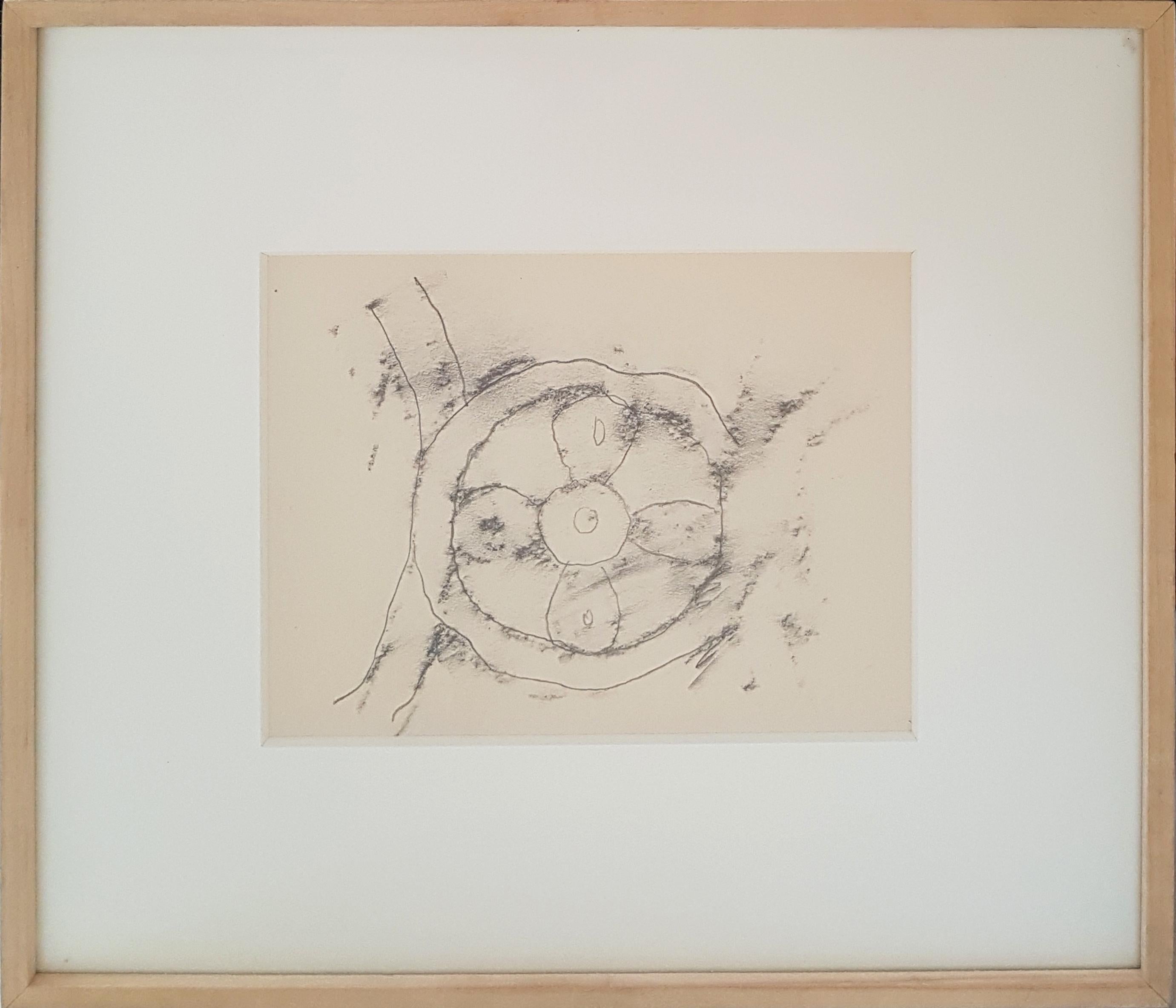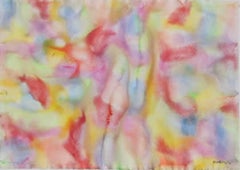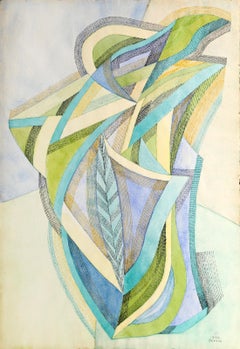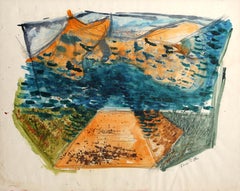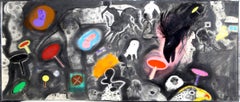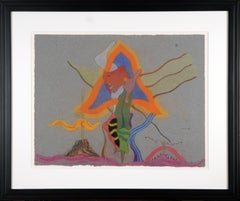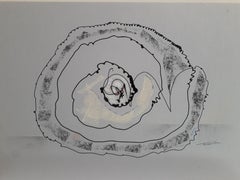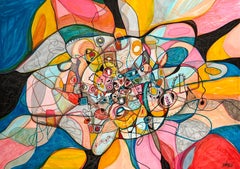Items Similar to Untitled 7, Colored Ink drawing by Benjamin Benno
Want more images or videos?
Request additional images or videos from the seller
1 of 9
Benjamin G. BennoUntitled 7, Colored Ink drawing by Benjamin Bennoca 1940
ca 1940
Price Upon Request
Price Upon Request
Price Upon Request
Price Upon Request
Price Upon Request
Price Upon Request
Price Upon Request
Price Upon Request
Price Upon Request
Price Upon Request
About the Item
The Amazon
Benjamin Benno, American (1901–1980)
Date: circa 1940
Colored ink on paper
Size: 14.75 x 21 in. (37.47 x 53.34 cm)
Frame Size: 22 x 28 inches
- Creator:Benjamin G. Benno (1901-1980, American)
- Creation Year:ca 1940
- Dimensions:Height: 22 in (55.88 cm)Width: 28 in (71.12 cm)
- Medium:
- Movement & Style:
- Period:
- Condition:
- Gallery Location:Long Island City, NY
- Reference Number:1stDibs: LU46612107202
About the Seller
4.9
Platinum Seller
Premium sellers with a 4.7+ rating and 24-hour response times
Established in 1979
1stDibs seller since 2014
3,183 sales on 1stDibs
Typical response time: 1 hour
- ShippingRetrieving quote...Shipping from: Long Island City, NY
- Return Policy
More From This Seller
View AllUntitled 1, Abstract Watercolor by Max Epstein
By Max Epstein
Located in Long Island City, NY
Max Epstein, Canadian (1932 - 2002) - Untitled 1, Year: 1973, Medium: Watercolor on Paper, Size: 22 in. x 30 in. (55.88 cm x 76.2 cm)
Category
1970s Abstract Abstract Drawings and Watercolors
Materials
Watercolor
Abstract Composition #1, Modern Cubist Drawing by Benjamin Benno
By Benjamin G. Benno
Located in Long Island City, NY
Benjamin Benno was an British-born American artist, best known for his Cubist and abstract works. This artwork is signed and dated.
Abstract Composition #1
Benjamin Benno, American ...
Category
1940s Cubist Still-life Drawings and Watercolors
Materials
Paper, Watercolor, Permanent Marker
Abstract #4, Contemporary Watercolor by Chris Ritter
Located in Long Island City, NY
This unique abstract work is a watercolor by American artist Chris Ritter. The use of broad gestural movement and bold colors creates an engaging composit...
Category
1960s Abstract Drawings and Watercolors
Materials
Watercolor
Untitled, Surrealist Mixed Media on Paper by Robert Beauchamp
By Robert Beauchamp
Located in Long Island City, NY
Robert Beauchamp, American (1923 - 1995) - Untitled, Year: c. 1979, Medium: Mixed Media on Paper mounted on board, signed l.r., Size: 35.5 in. x 80 in. (90.17 cm x 203.2 cm), Fram...
Category
1970s Surrealist Abstract Drawings and Watercolors
Materials
Mixed Media
Fetiche 4, Cubist Ink and Crayon Drawing on Paper by Benjamin Benno
By Benjamin G. Benno
Located in Long Island City, NY
Set against a deep green background of layered paint and wavy lines, Benjamin Benno’s textured composition features an array of unidentifiable figures of varying sizes and shapes. Th...
Category
1930s Cubist Abstract Drawings and Watercolors
Materials
Crayon, Ink
Abstract #6, Watercolor Painting on Paper by Chris Ritter
Located in Long Island City, NY
This unique abstract work is a watercolor by American artist Chris Ritter. The use of broad gestural movement and bold colors creates an engaging composit...
Category
1960s Abstract Drawings and Watercolors
Materials
Watercolor
You May Also Like
Untitled
By Jorge Camacho
Located in New York, NY
Jorge Camacho (Cuban, 1934-2011)
Signed and dated 1997.
30 x 36 Inches
Abstract Surrealist Artist. A self-taught artist, he quit his law studies in 1952 to dedicate himself to pain...
Category
Late 20th Century Abstract Drawings and Watercolors
Materials
Paper, Pastel, Color Pencil
Untitled
Located in Barcelona, BARCELONA
the painting is being offered with a work and authenticity certificate
Category
2010s Abstract Drawings and Watercolors
Materials
Paper, Mixed Media
Untitled
Located in Barcelona, BARCELONA
the painting is being offered with a work and authenticity certificate
Category
2010s Abstract Drawings and Watercolors
Materials
Paper, Mixed Media
M-0023, Drawing, Pen & Ink on Paper
By Yehan Wang
Located in Yardley, PA
this is my drawing painting, watercolor marker pen and mixed media on paper. 30x42cm 2018 NEW :: Drawing :: Abstract :: This piece comes with an official certificate of authenticity ...
Category
2010s Abstract Abstract Drawings and Watercolors
Materials
Pen
Untitled
Located in Barcelona, BARCELONA
the painting is being offered with a work and authenticity certificate
Category
2010s Abstract Drawings and Watercolors
Materials
Paper, Mixed Media
Untitled
By Gastone Novelli
Located in Roma, IT
Original drawing (mixed media on paper) from the artist's notebook known as "Viaggio in Grecia" (Trip to Greece) 1962-1965.
Excellent conditions, including a wooden frame. On the bac...
Category
1960s Modern Figurative Drawings and Watercolors
Materials
Mixed Media
